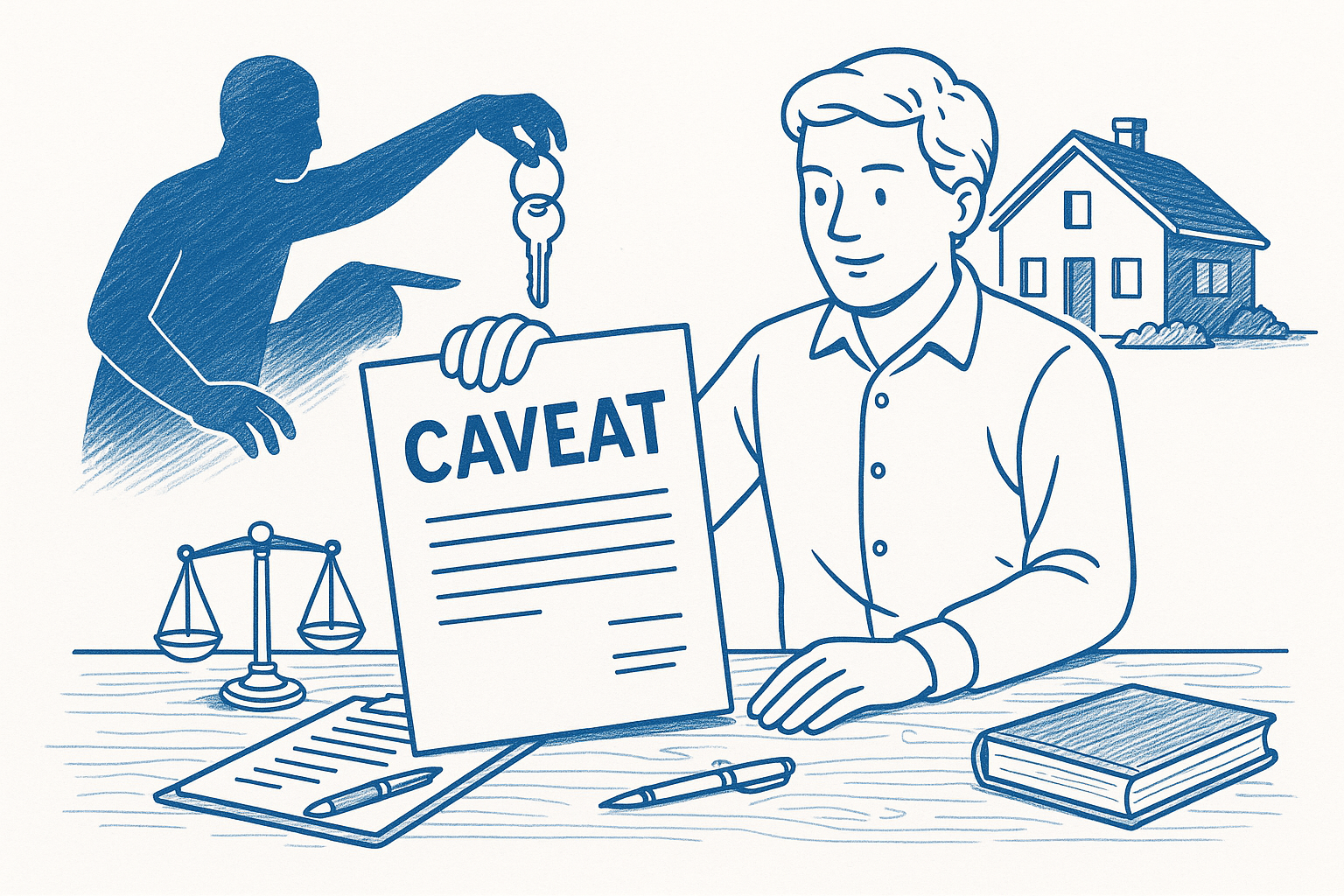How to Lodge a Purchaser’s Caveat (and When You Should)
A caveat is one of the most powerful tools a buyer can use to protect their interest in a property — but most people have never heard of it. If you’re buying in Victoria and have signed a Contract of Sale, a purchaser’s caveat can stop the vendor from dealing with the property in any other way until settlement. Here’s when you should lodge one, how it works, and how to do it properly.
What Is a Purchaser’s Caveat? A caveat is a formal notice lodged with Land Use Victoria that prevents further dealings on a title (like new mortgages, transfers, or second sales) without the caveator’s consent. When you lodge a purchaser’s caveat, you’re protecting your interest as someone who has signed a contract to buy the land.
Under Section 89(1) of the Transfer of Land Act 1958 (Vic), a purchaser under a valid contract of sale has a caveatable interest.
Why Would I Lodge a Caveat? There are several reasons:
Prevent the vendor from attempting to resell the property to someone else at a higher price
Protect against fraudulent transfers or identity theft
Ensure your interest is registered before any other third party tries to interfere
Block the vendor from refinancing or further mortgaging the property before settlement
A caveat acts as a legal warning to the world that someone else (you) already has a claim.
Is It Always Necessary? Not always. Many settlements proceed without issue. But we recommend lodging a caveat in cases where:
The vendor is under financial stress or has existing debts
The property is being sold under unusual or risky circumstances
There is a delayed settlement (more than 60 days)
The deposit is low or not yet paid in full
You are buying under a nomination, option or off-market agreement
If you’re unsure, read our full guide: Why You Should Consider Lodging a Purchaser’s Caveat
How to Lodge a Caveat in Victoria Caveats are lodged electronically through PEXA or via paper if you are not a subscriber. To lodge a caveat properly:
Confirm you have a valid interest (e.g. signed contract)
Include accurate title details and property description
Ensure the caveat wording reflects your purchaser’s interest
Lodge through a legal representative or licensed conveyancer
We prepare and lodge caveats for our clients with full supporting documentation.
What If I Don’t Lodge a Caveat? Without a caveat, your interest remains unregistered. In rare but serious cases (e.g. Black v Garnock [2007] HCA 31), a purchaser lost their property because the vendor’s creditors acted before registration.
Identity theft and title fraud are modern risks — especially with increasing digitisation. A caveat is your best defence.
Can a Vendor Remove a Caveat? Only through formal legal process. A vendor must apply for the caveat to be withdrawn or removed by order of the court. If your caveat is properly based on a valid contract, it is very difficult to override.
Need Help Lodging a Caveat? At Victorian Property Settlements, we provide:
Fixed-fee caveat lodgement services
Fast preparation and submission
Full explanation of risks and benefits
We’ll explain if you need one, how to do it, and how it protects you.
Click here to request a caveat instruction letter or ask us to review your purchase contract first.
Related Reading:
Victorian Property Settlements – Trusted for over 25 years by Victorian buyers and sellers. Visit: www.victorianpropertysettlements.com.au

